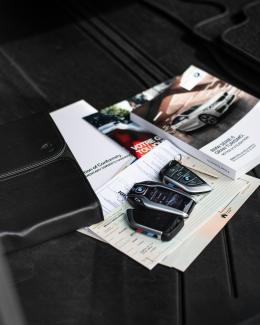
Should I go into debt to buy a car?
When you are considering buying a car, some of the biggest questions will be how you pay for it, whether you buy new or used, and whether you should lease. Today we will dive into how you might pay to purchase a car. You may pay cash (out of your savings) or you may decide to use a loan.
If you pay using cash, or your savings, you will not have to pay interest. Not having to pay interest on the loan ultimately saves you money in the long-run. Additionally, you won't have to worry about monthly payments. Sometimes, paying cash can give you more negotiating power with the seller.
If you use a loan, you can shop around for the best loan. Sometimes using a bank or credit union to handle your loan gives a better interest rate than the dealership, but sometimes the dealership can offer special incentives or discounts for financing through their preferred lenders. It's always a good idea to shop around before signing onto a loan program. Using a loan often requires a smaller down payment, which may get you into a better car. Making your monthly payments on time builds your credit score, which is always a good goal.
When making the decision to purchase a car, you should consider your financial situation - can you afford to let go of a huge amount of savings for a car? Would you be more comfortable with more money in your bank account as a buffer, and making smaller monthly payments? Consider your comfort level with owning the car outright immediately, or having that monthly payment.
Ultimately, the best choice for you will depend on your individual circumstances and priorities. It's often helpful to weigh the pros and cons of both options and consult with a financial advisor to get personalized advice.

